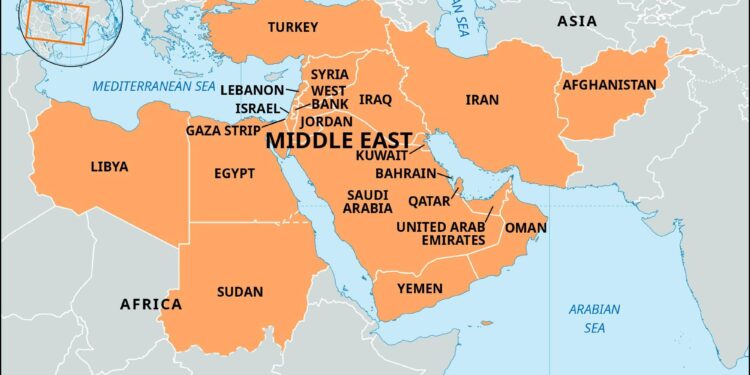Middle Eastern Nations Unite to Call for Calm After Israeli Airstrikes on Iranian Targets
Regional Leaders Advocate for Immediate Diplomatic Engagement Amid Heightened Conflict
In response to Israel’s recent air raids targeting Iranian military sites, a coalition of Middle Eastern countries has urgently appealed for de-escalation and renewed diplomatic efforts. These strikes, which Israel asserts were preemptive measures against perceived threats from Tehran, have intensified anxieties about the possibility of a wider regional confrontation in an already volatile landscape.
Countries including Egypt, Saudi Arabia, and Jordan have publicly emphasized the critical need for transparent communication and peaceful negotiations as alternatives to further military action. Their statements underscore a shared commitment to safeguarding regional security through dialogue rather than force.
The gravity of the situation has led foreign ministers across the region to convene emergency sessions aimed at crafting coordinated responses. Key proposals emerging from these discussions include:
- Creation of direct communication channels between conflicting parties to reduce misunderstandings.
- Expansion of humanitarian assistance programs targeting communities affected by ongoing hostilities.
- Enhanced intelligence cooperation among neighboring states to bolster collective security efforts.
| Nation | Main Stance |
|---|---|
| Egypt | Calls for an immediate ceasefire followed by constructive talks. |
| Saudi Arabia | Pursues a multilateral framework emphasizing diplomacy over conflict. |
| Jordan | Pledges support for stability through sustained dialogue initiatives. |
The Ripple Effects: Evaluating Israel’s Strikes on Iran and Regional Stability Concerns
The recent Israeli operations against Iranian positions have sent shockwaves throughout the Middle East, eliciting swift reactions from neighboring governments wary of escalating violence. The potential consequences extend beyond immediate military retaliation; they threaten socio-political equilibrium within several states that are already grappling with internal challenges such as economic fragility and sectarian divisions.
A recent report by the International Crisis Group highlights that since early 2024, incidents linked to cross-border tensions in this area have increased by nearly 30%, exacerbating fears over refugee flows and disruptions in vital trade corridors—particularly those involving oil exports which constitute approximately 40% of global supply routes passing through this region.[1]
This situation resembles a tightly wound spring: any additional pressure risks unleashing unpredictable consequences that could destabilize not only local governments but also international markets dependent on regional stability. Collaborative forums are now focusing on mitigating these risks through diplomatic channels designed to prevent escalation into open warfare or prolonged crises affecting millions across multiple countries.
| Country | Reaction To Israeli Actions | Potential Consequences |
|---|---|---|
| Iran | Vowed retaliatory measures; increased alert status. | Heightened military preparedness; risk of proxy conflicts intensifying. |
A Path Forward: Strategic Recommendations Emphasizing Diplomacy Over Conflict Escalation
The current climate underscores that sustainable peace hinges upon robust diplomatic engagement among all stakeholders involved in or affected by these developments. Middle Eastern leaders consistently stress that addressing core grievances via negotiation is paramount if further deterioration is to be avoided.
To this end, several key strategies should be prioritized:
- Spearheading Inclusive Peace Dialogues: Facilitate multilateral talks incorporating diverse voices—from state actors to civil society—to build trust and identify common ground regarding security concerns.
- Create Reliable Communication Networks: Establish permanent channels enabling rapid information exchange aimed at preventing miscalculations or accidental escalations.
- Cultivate Regional Partnerships: Promote frameworks encouraging joint economic development projects alongside coordinated security initiatives fostering mutual benefit.
Beyond regional efforts, international organizations must play an active role supporting restraint while providing mechanisms ensuring compliance with agreements reached during negotiations.
Recommended global actions include:
| Initiative | Description |
|---|---|
| Diplomatic Coalition Building < td > Mobilize unified international pressure advocating peacekeeping measures and discouraging unilateral aggression. | |














